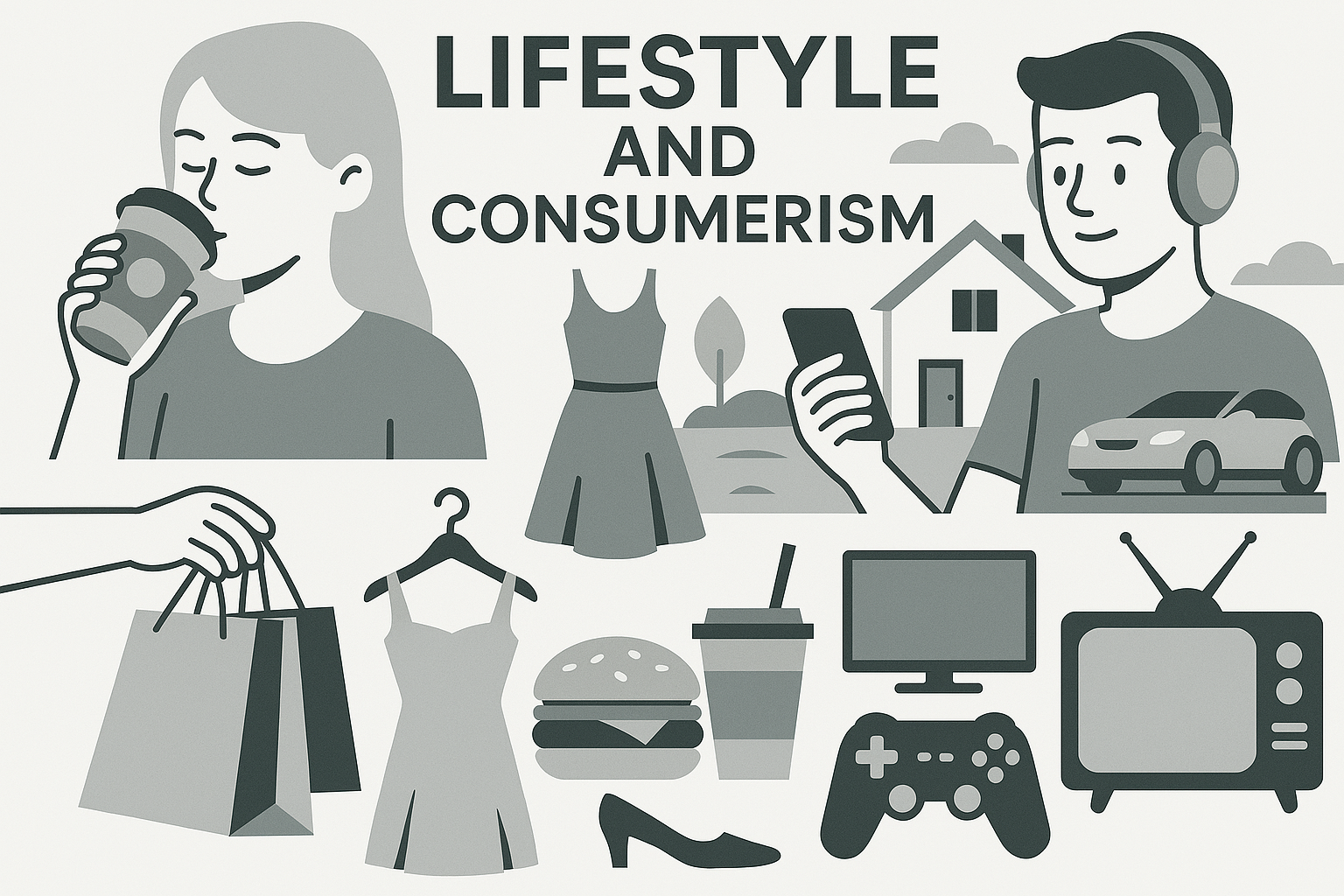The concepts of lifestyle and consumerism have become central to contemporary discussions on environmental degradation, social inequality, and sustainable development. A lifestyle refers to the set of habits, behaviors, values, and daily choices that shape an individual’s way of living. Consumerism, on the other hand, is a socio-economic ideology that encourages the acquisition of goods and services in ever-increasing amounts, often equating personal success and happiness with material possessions. When these two ideas intersect in the modern context, they often promote unsustainable patterns of production and consumption.
Modern consumerist lifestyles are characterized by high levels of resource use, energy consumption, and waste generation. The dominant culture of consumerism in both developed and increasingly in developing countries promotes the idea that continuous economic growth and consumption are essential to societal well-being. Advertisements, media, and corporate influence play a powerful role in shaping desires and creating perceived needs, even when those needs are not grounded in actual necessity.
The environmental consequences of such lifestyles are severe. For instance, the mass production of goods requires raw materials extracted from the Earth—leading to deforestation, mining, and loss of biodiversity. The manufacturing process consumes large amounts of energy, often derived from fossil fuels, contributing to greenhouse gas emissions and climate change. Additionally, the culture of disposability, wherein items are used briefly and discarded, has created mounting problems of plastic pollution, electronic waste, and landfill overflow.
Consumerism also affects society in profound ways. It often fosters a culture of inequality and social alienation, as people are encouraged to measure their worth based on what they own. This can lead to increased levels of anxiety, dissatisfaction, and competition. In developing countries, this consumerist ideal can deepen economic divides as the poor aspire to lifestyles that are economically unattainable, often at the cost of borrowing or engaging in exploitative labor markets to achieve them.
The lifestyle of overconsumption also disproportionately affects the global South, even though the majority of consumer goods are produced there for consumption in the global North. Environmental costs such as pollution, resource depletion, and labor exploitation are often borne by the developing world, while the benefits of consumption accrue to wealthier nations. This highlights the global injustice embedded in current consumption patterns.
However, there is a growing awareness and critique of consumerist lifestyles, leading to the emergence of alternative paradigms such as minimalism, voluntary simplicity, slow living, and ethical consumption. These emphasize the quality of life over the quantity of possessions, and prioritize ecological balance, mindfulness, and community well-being. Movements promoting “reduce, reuse, recycle,” sustainable fashion, organic foods, and renewable energy adoption are all steps toward more responsible living.
Ultimately, addressing the environmental and social challenges posed by consumerism requires a rethinking of what constitutes a good life. Governments can play a role through policies that promote sustainable products, impose environmental taxes on polluting goods, and educate citizens about the long-term impacts of consumption. Civil society and educational institutions must also help in reshaping cultural norms to value sustainability, equity, and sufficiency over greed, waste, and status-based consumption.
In conclusion, the modern lifestyle rooted in consumerism is a major contributor to ecological degradation and social disintegration. Transforming this model is not merely an environmental necessity but a social imperative for creating a more just, equitable, and sustainable world.








Leave a Reply